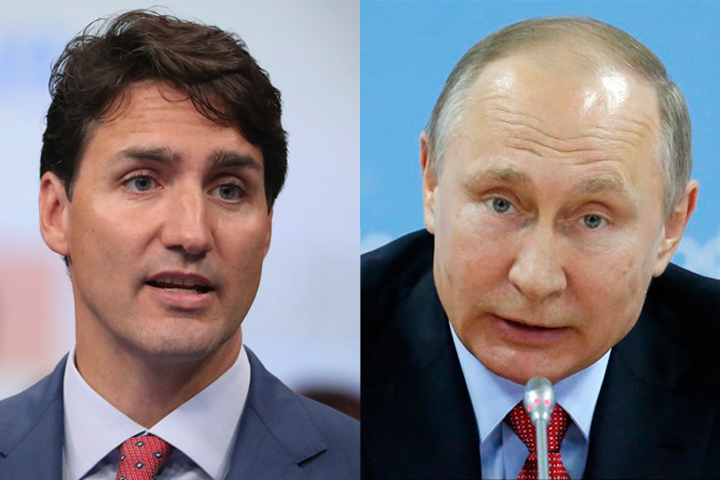On this week’s episode of Global News’ original podcast, This is Why, we take a closer look at Canada’s relationship with Russia with the help of Defence Minister Harjit Sajjan, ex-KGB spy Jack Barsky, and former Canadian ambassador to Russia Jeremy Kinsman.

As the Special Counsel investigation continues to look at whether the Russian government had any possible links to Donald Trump’s presidential campaign, the evidence that Russia interfered in the U.S. election continues to mount.
Here in Canada, the government is condemning Russia’s president Vladimir Putin and speaking out against the rise of Fake News.
Speaking on This is Why, Sajjan expressed his concerns.
“We will be targeted here in Canada and we need to be mindful of that. Fake News is a reality unless you’re getting it from a credible news source,” Sajjan says.
“We’re looking at putting the right tools in place, the right governance structure. And when we do this, we send a very strong message of deterrence to Russia, saying these types of activities that you have created, which is a method really to create discord within a population, is not going to work,” Sajjan adds.
The right approach toward Russia

Get daily National news
Both Canada and the U.S. are taking very different approaches when it comes to Russia.
Trump appears to be using a method of flattery, while Prime Minister Justin Trudeau has condemned Russia for the illegal annexation of Crimea, its incursion into the Donbass in Ukraine, its interference in Syria, its support for the Assad regime and the chemical weapons attack in Salisbury on U.K. soil against British nationals.

Former KGB spy Barsky explains what he believes is the right approach in dealing with Putin.
“Flattery doesn’t work. In modern history, where we have a record as to what happened, being nice to Adolf Hitler didn’t mean a thing and being nice to Joseph Stalin didn’t make him less of a dictator,” Barksy says.
“You’ve got to be firm, but not aggressively so.”
While the Canadian government’s anti-Russian sentiment is clear, the impact and influence of Canada’s opinion on the world stage is not.
Jeremy Kinsman, a former Canadian Ambassador to Russia, says that some countries are banding informally together.
“We are known for inclusivity, known for managing a society where different people get along and so a few countries… do look to Canada as an ally in their efforts of like-minded countries to try and set things right and set a better example of democracy”.
Watch below to learn more about the This is Why podcast:

John O’Dowd is a co-producer on This is Why.
This week’s episode of This is Why is available through Apple Podcasts, Google Podcasts, or wherever you like to listen to your favourite podcasts.











Comments